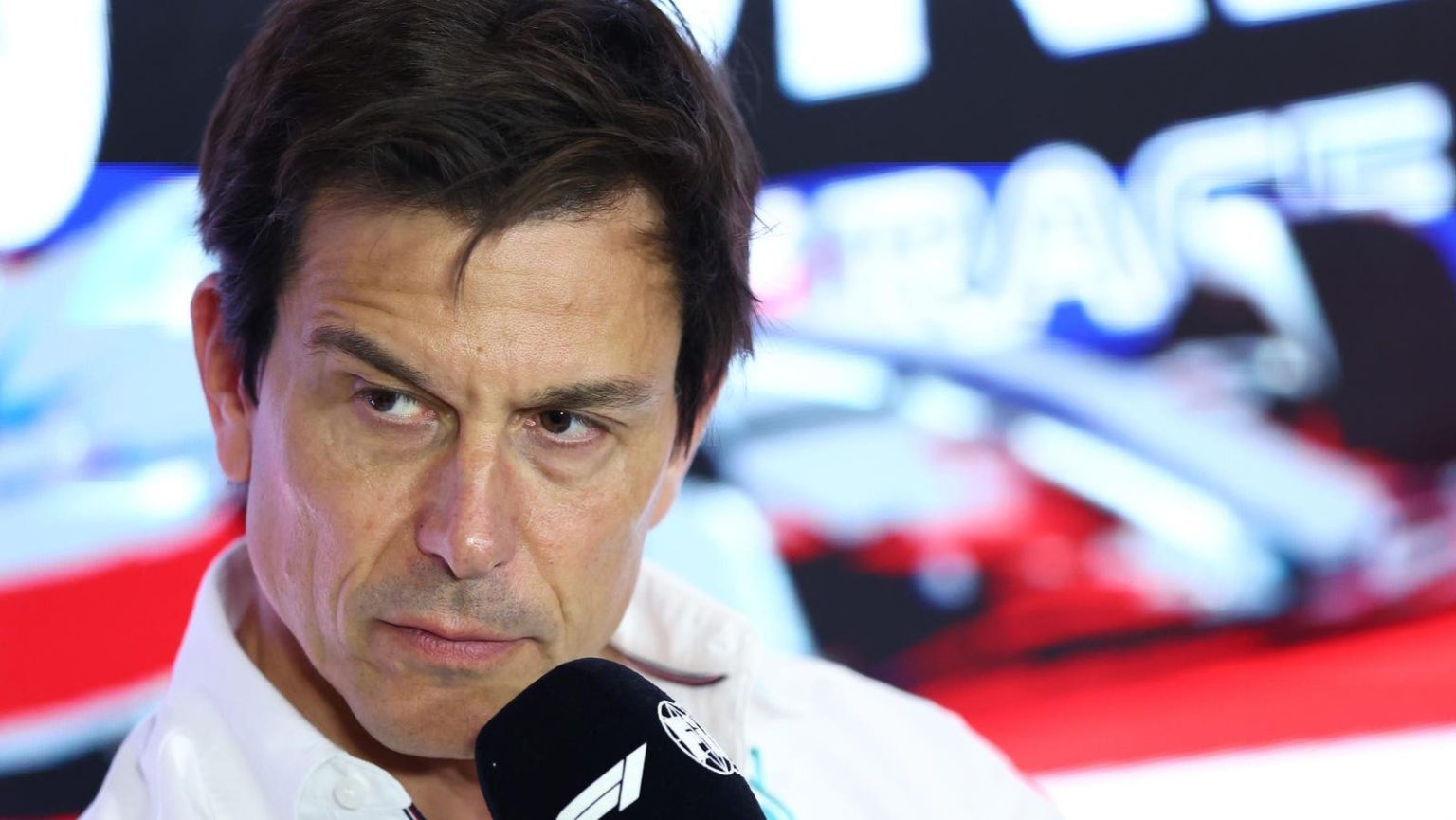By any measure, Toto Wolff has leadership figured out. After winning eight consecutive Formula 1 Constructors’ Championships from 2014 to 2021, the team principal and CEO of the Mercedes-AMG Petronas F1 team has been arguably the most successful leader in the history of the sport.
Wolff’s performance has been so impressive that a 2021 study by Harvard Business School offered up six actionable strategies for those hoping to recreate some of his success within their own organizations. But while outward-facing techniques like these are often inspiring for leaders, recent studies in the fields of psychology and neuroscience suggest that a leader’s internal processes may be just as crucial for achieving success.
So, when offered the opportunity to interview Wolff for NBCUniversal Catalyst at the Energy Asia Summit 2023 in Kuala Lumpur, Malaysia this past June, I wanted to add to HBS’s insights by learning more about Wolff’s inner environment. The conversation about executive mental health that followed was surprisingly candid in a world where never, ever showing vulnerability is still considered a necessity for business survival.
If you sometimes feel down, you have a “superpower”
Wolff started by describing a childhood with “no happy memories,” during which his parents divorced and his father eventually lost a 10-year battle with brain cancer. “When you are in a high-pressure environment like myself or if you had a tough childhood, you suffer from mental health issues [like] I did, and I still do. You are never out of it because it is part of who you are,” Wolff said.
Instead of framing these experiences as a liability, however, he said the overall lack of stability gave him stamina and an understanding of how the emotional strength of human beings tends to ebb and flow. “When you have a sensitivity that makes you vulnerable to go down, you also have that superpower that makes you go up,” he said. “The more sensitive you are, the more you feel and the more compassion and empathy you can develop. But you have to take both sides. It is never one.”
Protect yourself using self-compassion
Wolff is engaging in what is known in psychology and coaching circles as self-compassion. Simply put, self-compassion means being as kind to yourself as you would be to others. Instead of allowing a fierce inner critic to run roughshod over your confidence when things do not go exactly as planned, cut yourself some slack. Challenge the voice that says, “You messed it up again, you idiot,” and use language you would use when talking to a loved one who is feeling down.
The concept of self-compassion can be a difficult concept for executives to comprehend because it feels “soft” in a world where perfectionism yields temporary, and therefore misleading, positive results. A common rebuttal is to point out that self-criticism has served them well in the past, so why stop now?
Dr. Kristen Neff, an associate professor from the department of educational psychology at the University of Texas at Austin, begs to differ. She has conducted extensive research on the subject and developed a self-compassion scale. In a groundbreaking Ted Talk on self-compassion, Neff pointed to the evidence-backed benefits of self-compassion, which include increased emotional resilience, reduced levels of anxiety and depression, and an enhanced sense of common humanity that is reflected back to us in the form of better relationships at work and in our personal lives.
“We have to break the stigma”
By modeling self-compassion for his team, Wolff is normalizing the expression of emotions that many of us try to hide or repress. “We have to break this,” he said. “It is complete nonsense. We are normal people. We have days when we perform, and days when we don’t perform. We have to break the stigma.”
Engaging in self-compassion may be especially important for anyone in a high-profile position. The reality of being a human with power is that the drumbeat of external criticism grows louder as you rise up the ranks. Comments from competitors, employees, online trolls or the media often converge to challenge success. This dynamic is something Wolff has encountered in the past.
“When we had a bad year last year, some of the mainstream media came out and said, ‘maybe Toto Wolff is not well. Maybe that is why the team is not doing well,’” he recalls. “Can you imagine what assholes there are in the world?” he asks, adding: “They can’t do anything to me, they can’t affect my life.”
Wolff’s self-compassion buttressed his leadership and provided crucial perspective during such a difficult period in his career. When executives in highly competitive fields have to simultaneously endure external criticism and a fierce inner critic, they eventually become emotionally depleted and are vulnerable to depression, a sense of being overwhelmed and possibly addiction.
Balance self-compassion with self-reflection
But being self-compassionate does not mean letting yourself off easy–it needs to be balanced with honest and accurate self-reflection. Wolff described how he made the difficult decision to leave his passion of racing cars to focus on the business side of the sport. “I think introspection and self-assessment are important,” he said. “When I embarked on the route of being a race car driver, that was all I wanted to do. But when I was really honest with myself, I had the feeling I couldn’t make it all the way to the top, so I cut it. That’s what I always do when I take a decision. I don’t look back.”
Accepting past decisions and looking forward is, in itself, a generous act of self-compassion. Too often, we ruminate over things we wish we had done differently, and punish ourselves repeatedly for “mistakes” that cannot be undone.
Drop the “I have it all together” act
In January, 2024, Harvard’s MBA program will offer a new course entitled: “Mercedes F1: Leading a High-Performance Team,” that will be co-taught by Wolff. While students will undoubtedly be looking for strategies to boost their careers, it’s likely they will receive a more nuanced view of leadership than previous cohorts.
“It is important to tell you guys that although I am always smiling into the camera, I am doing Formula 1, I have a few trophies that I lift, and my friend is Lewis Hamilton, it is still super tough sometimes behind the façade,” Wolff said.
While we will always look to successful leaders for inspiration, don’t underestimate the latent potential that a nourishing inner world can unleash. Each story of origin is complex and laden with gifts that are often only revealed when the internal pressure gauge is lowered, allowing your distinctive creative potential to flourish.
Read the full article here





